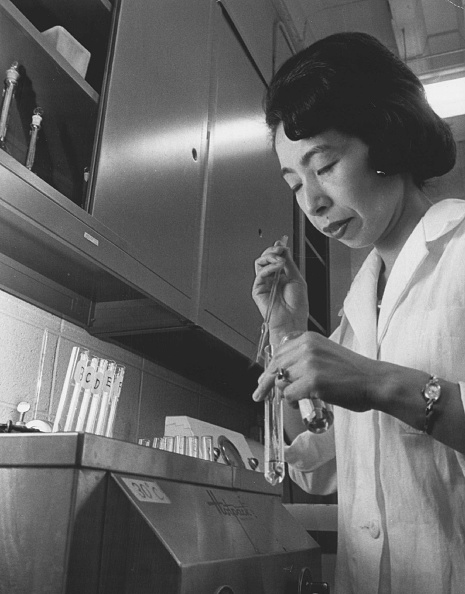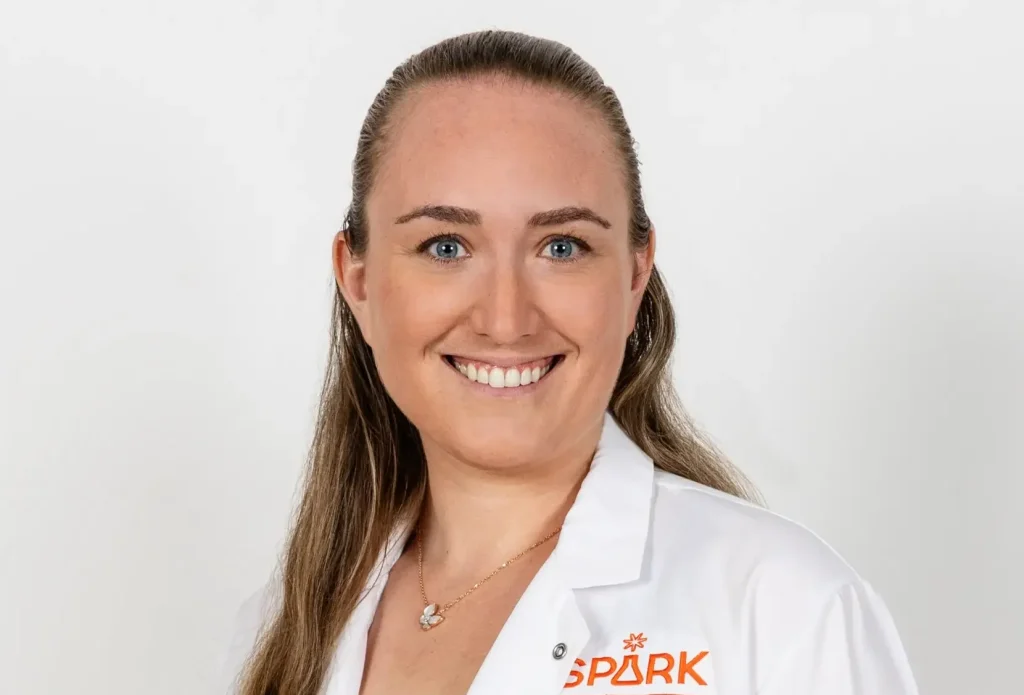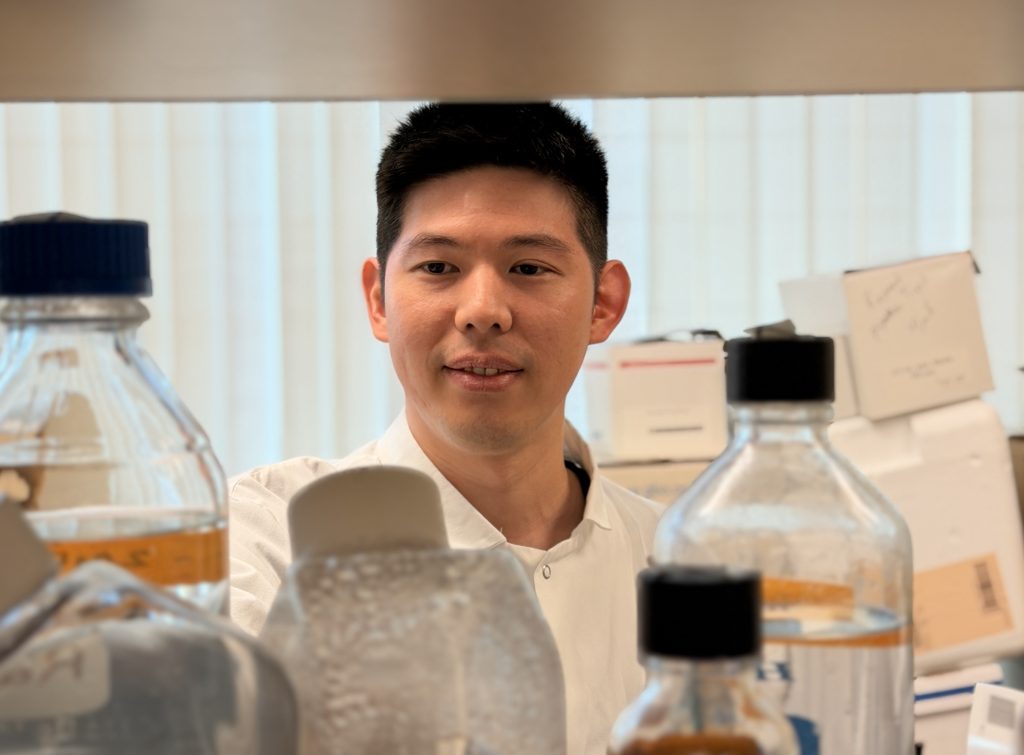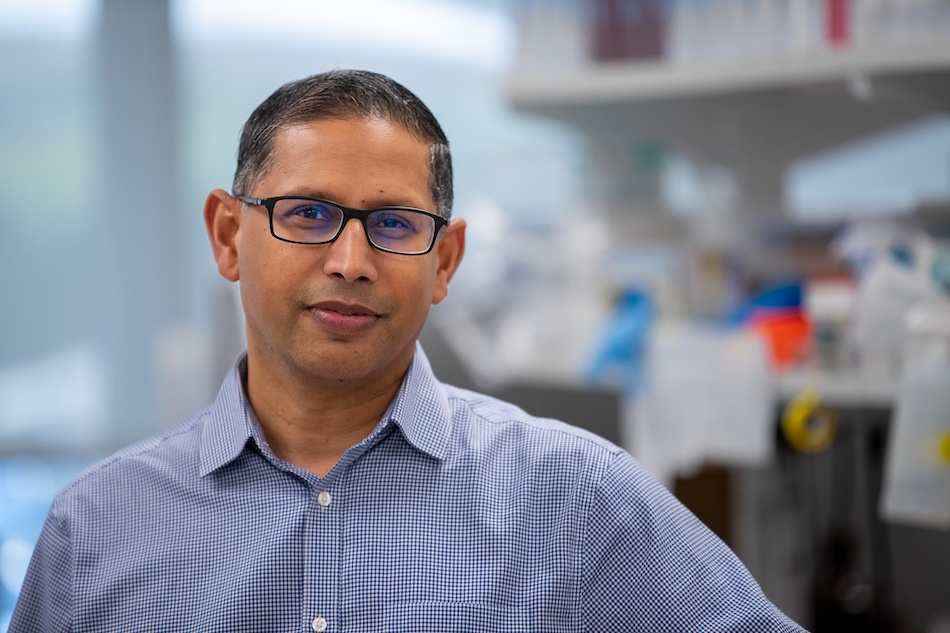
LA JOLLA, CA—Dr. Teruko Ishizaka, trailblazing female scientist and co-discoverer of a novel class of antibodies known as IgE and former member of La Jolla Institute of Immunology (LJI), has died in Yamagata City, Japan. She was 92 years old.
“On joining our Institute, Dr. Ishizaka continued pioneering work on mechanisms and immune cell types that mediate allergic responses,” said Amnon Altman, Head of the Division of Cell Biology, who was recruited by the Ishizakas in 1990. “But Terry, as we called her, not only distinguished herself scientifically but set a shining example in inspiring young scientists to work in a truly collaborative spirit. That talent, deeply rooted in the Japanese culture, continues to serve this institute well, more than 20 years later.”
Born in Yamagata, Japan, in 1926, Teruko stayed deeply connected to her birth country throughout her life. Yet, she defied the cultural expectations of her era early on when she earned an M.D. at Tokyo Women’s Medical University in 1949, the same year she married Kimishige Ishizaka, and set her eyes on a career in research. She went on to earn a Ph.D. in medical science from University of Tokyo in 1957 and undertook postdoctoral training at the California Institute of Technology from 1957-1959.
Teruko Ishizaka arrived in La Jolla in 1989 to become a member and head of the Division of Allergy at the then brand new Institute. She came here from the Johns Hopkins University School of Medicine with her husband Kimishige, who had just been named the institute’s first Scientific Director. Prior to joining LJI, both conducted immunology research as faculty members at Johns Hopkins University.
But the scientific discovery that defined their careers occurred well before that when Teruko, working with Kimishige as a Research Immunologist at Children’s Asthma Research Institute and Hospital in Denver, co-discovered allergen-specific antibody proteins called immunoglobulin E (or IgE). That finding, reported in 1966 in the Journal of Immunology, defined a new class of antibodies that trigger allergic reactions.
Later, the Ishizakas reported that IgE proteins provoke allergic responses by binding to mast cells, a type of white blood cell, causing them to release histamine to cause the physiological symptoms associated with allergy. Now, routine blood tests used to validate an allergic response actually detect levels of IgE antibodies in response to a test stimulus.
After the discovery of IgE, Teruko, always working collaboratively with her husband, conducted allergy-related research for 25 years, in Denver and then at Hopkins, where she moved in 1970 and where she eventually became a full professor of Medicine and Microbiology in the medical school. Between 1953 and 1992—the period encompassing her career as a bench scientist—Teruko published over 100 papers and reviews on allergy-related topics, most co-authored with Kimishige. Even in retirement, the couple occasionally co-authored reviews of the history of IgE research and mast cell biology.
Teruko Ishizaka earned several prestigious scientific prizes for discovering IgE. Among them were the 1972 Passano Award and the 1973 Gairdner Foundation International Award, both shared with her husband; the 1985 American College of Physicians Award for Achievement in Medical Science; the Pioneer of Modern Allergy Award from the American College of Allergists in 1982; and a Scientific Achievement Award from the International Association of Allergy and Clinical Immunology after she retired in 1994. In 1990, she won the Behring Kitasato Prize for “The study of mast cells and elucidating the mechanism of allergy.” She was the first woman scientist in Japan to be so honored.
When she retired from LJI in 1993 she continued to live in La Jolla until she and her husband returned home to Japan in 1996. There, they resided in Yamagata City, in northern Japan. At the time of her death she served as Member Emeritus in the LJI Division of Allergy.
After moving to La Jolla, Teruko shifted her focus from bench science to support her husband as he set up and recruited scientists to fill LJI’s first research labs, a task that often required her people skills. “Terry was very supportive of young people back when the institute was a small place,” says Yuko Kawakami, M.D., Ph.D., an LJI Scientific Associate who knew Teruko well in LJI’s early years. “Back then everyone knew each other. Terry set the tone that the institute is a homey place for extended families, more than just a collegiate place to work comfortably.”
Early recruits to LJI vividly remember Teruko’s joy in making the institute’s children happy. “She had big pockets,” said Yuko Kawakami, recalling numerous holiday parties, beach outings and baby showers Terry arranged for institute staff. “Every year she and Kimi bought Christmas presents for every child of anyone who worked at the institute—from their own pocket.”
“She really did love children,” echoes Altman. “Terry considered herself the grandmother of most of the children at the institute.”
“After retirement, Terry had two dreams,” recalls Yuko Kawakami. “One was to return to Japan and live a happy life in her hometown of Yamagata, and the other was to go on a gourmet tour around the world with their first postdoc, Tomio Tada.” Tada, who after training with the Ishizakas in Denver and becoming a very prominent immunologist himself, was a colorful personality who later switched careers to become a playwright of traditional Japanese Noh dramas. Teruko evidently harbored a few out-of-the-box notions herself, having entered tango competitions in Argentina in her youth.
Half of her dreams came true. Sadly, the worldwide gourmet tour never came to pass. But Teruko and her husband did build a house with a gorgeous mountain view in the countryside outside Yamagata and were officially fêted by their community as “honorable residents of Yamagata prefecture.”
Dr. Ishizaka is survived by their son Yutaka Ishizaka, of Weston, Massachusetts. Her husband Kimishige Ishizaka passed in 2018.


